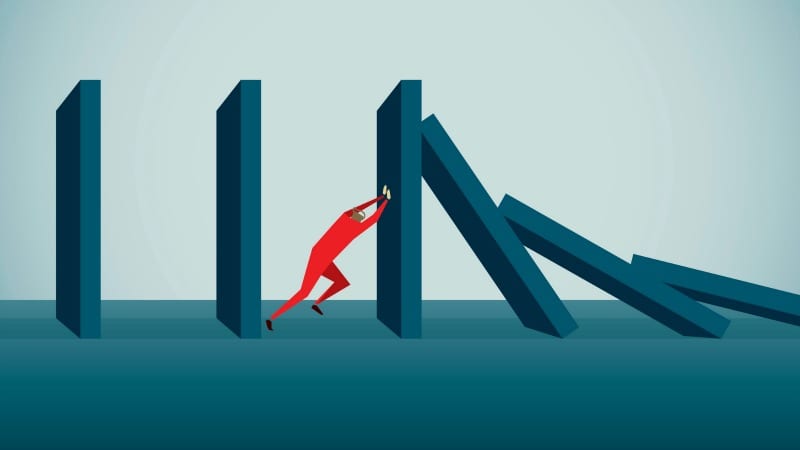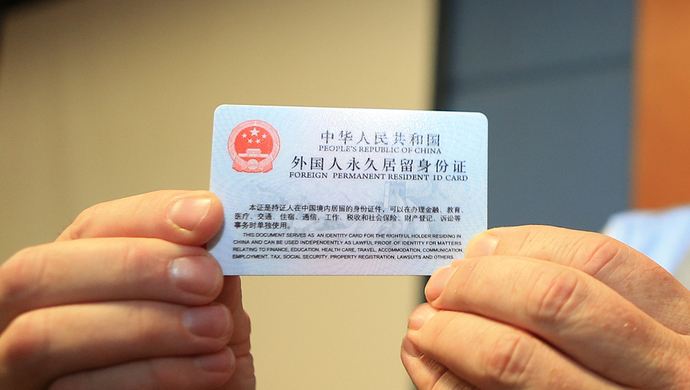
2 Ways to Counteract Teacher Burnout

By Ted Salonek | China Jobs Daily

Seasoned teachers know that it’s coming. We can’t avoid it, but we can resist it. If you’re a brand new teacher, you may start to feel it half way through the year, or part way through your second year. Teacher burnout is very real, and it can cause you more than just mental anguish and exhaustion. It can lead to a classroom full of unenthused students who lack all motivation or resort to disruptive behavior to add some excitement to their schooldays. If you’re a teacher, you’re the leader and facilitator in your learning environment. The behavior you model for your students will be reflected in their academic performance. If you seem dreary, tired, and disconnected, your students will most certainly feed off that and disengage accordingly. I had a chat with a couple of seasoned educators, with 10-20+ years of experience in the classroom, on how to avoid this burnout. Their answers may be able to help you stay in the game and finish out the school year at the same tempo you started it with.

Strategize for Efficiency

David Corrales, a seven year educator in the public schools of the USA with and additional four years of foreign teaching experience in South Korea and China, was willing to share some of the methods he’s acquired from teaching for over a decade. “It’s very important that you do not expect perfection. If things go according to plan 80-85% of the time, you should be happy with that. It’s better to hit the mark most of the time than to expect constant perfection. Expecting perfection can result in devastation and exhaustion when one of your ‘perfectly planned lessons’ tailspins out of control.”
This is something I have been guilty of in the past. As teachers, we spend time meticulously blueprinting each part of our lesson, budgeting our time as accurately as we can. Sadly, sometimes these blueprints get thrown out the window when we look up at the clock and realize the rest of the lesson plan will not fit into the sliver of time we have left before the bell rings.
“ROI (return on investment) of your time relative to the activity you’re planning is always something to keep an eye on. Don’t kill yourself planning an activity that is only going to last a single day.” Mr. Corrales continued. “New teachers always do this, and they soon realize that lesson plans are fluid, never concrete. When you find an activity that works, don’t be afraid to use it regularly. Students naturally follow routines. Overwhelming them with new activities and unusual sequences of learning can be dangerous, chaotic, and counterproductive. Most students, unfortunately, are not very good at adapting. It’s really the teacher’s responsibility to be adaptable. ”
Many teachers choose to spend a majority of their class time lecturing didadictly. According to Mr. Corrales, this can be draining for both student and teacher alike. “If there is one useful observation I have made as a teacher, its that students thrive when they, rather than the teacher, are the center of the learning environment. Try to allow them to bear the responsibility of learning. Whenever you can shift the burden of work from you to them, you will notice that a lot more learning gets done than if you simply dictate to your students the whole time.” Mr. Corrales went on to explain how this can be done, “Try to create a structure for your class that lessens your load later on in the semester or school year. In my AP and higher level classes, by the end of the year, once I get the class going, I really don’t need to be there for the rest of the period. I created a structure where they are accustomed to working with my support as the last step of the exercise or project.”
As you can see, Mr. Corrales’s ideas about preserving your mental energy as a teacher have to do with lesson planning, but it also involves a shift of the burden of learning onto the students. These are advanced methods, and should be attempted with caution, but if you develop the teaching ability to create a student-centered classroom, you’ll soon see that students are capable of teaching each other. Oftentimes this communal and communicative approach can yield better results than an old-school, lecture-like approach.

Take It Easy on Yourself

Michael Hollingsworth, a now retired teacher who taught in the USA, China, and Thailand provided some insight on how to keep yourself in the game when teaching becomes tiring. “A common mistake I see teachers make is the creation of classroom rules that do not significantly improve the effectiveness of their teaching. Poor classroom management can be, by far, the most taxing part of one’s teaching career. Focus your energy on being an engaging teacher rather than wasting your energy on behavioral problems.” When I asked Michael to expand on this he replied, “The little things that happen in the classroom, such as talking without raising your hand, chewing gum, standing up and waiting by the door before right before the bell rings, or not returning books to the book shelf can be addressed as they come up, but don't create major rules around minor instances. If the students aren't returning their books to the proper place, remind them to do it. You could post a reminder next to the book shelves, but don't make a new rule. Rules should be concrete. They should also be broad enough that they apply to multiple situations, not just one specific instance.”
Being a new teacher in the classroom for the first time can be hectic. It may feel like every little mishap will lead to the end of the world. Try to focus on the lesson you are teaching. Pay attention to the reactions of your students. Avoid letting stressful situations in the classroom rattle you or make you feel defeated. We all experience these scenarios, you can choose to develop further as a teacher, or you can let this line of work drive you to insanity.
When I asked Michael about how a teacher can make it through a few years without being burnt out, he mentioned the importance of breaks. “Breaks should be breaks. For the first few days of a winter or summer break, you should actively plan to do nothing. No catching up, no lesson planning ahead, and no side jobs. Actively do nothing. Do nothing until you are bored of doing nothing. Throughout the academic year, the students zap you of your energy. You need to recharge or you will return to the classroom just as zapped as you left it.”
The more I thought about Michael’s ideas on fully recharging, the more I began to understand the importance of the extended breaks we enjoy as teachers. At the end of a semester or school year, I always feel fried. It’s tempting to start working on a side job, start on a project around the house, or start on next year’s curriculum, but do you really want to attempt any of these things when in a state of debilitating mental fatigue?
The final piece of advice Mr. Hollingsworth gave me seemed very simple and obvious, but it is something I will be applying to my teaching and lesson planning methods. “Once the school year is over, write a list of things you want to do differently next year. Don’t wait until the first day of the next school year to do this or you will forget everything over the summer. During your time off, when you have a creative idea for an activity, lesson, or unit plan, write it down. Don’t let it get away from you! If you keep track of these ideas, it will remove the pressure of being creative on the spot.”

Pace Yourself, Prepare Thoroughly, and Remember to Laugh

Teachers are a special breed. We are all very different in our own ways, but we are all common in a few. One commonality between all (good) teachers is that we care. We care about our students, we care about how they learn, and we care about how our instruction will enhance their futures. As Mr. Corrales and Mr. Hollingsworth explained, we must work on preparation, structuring the lessons around the students, but not driving ourselves mad doing so. When you are enjoying a break, try to start it off with a “cool down” period, and always remember to adapt.
The final bit of advice I would like to give to new teachers is this: remember to laugh. You cannot live your life as a teacher if you take everything far too seriously. There will be times when you could choose to pull out your hair (while questioning whether or not you are meant to be a teacher), or you can have a sense of humor and bounce back from any setbacks or adversities you are facing. No teacher is perfect, and every teacher faces challenges in their classroom. Keep calm, persevere, plan well, and always have a sense of humor. Burnout has an annoying way of dragging you into a professional depression, but if you take some of the ideas in this article and apply them to your craft, you’ll see that teaching is not only rewarding, but truly enjoyable.










 京公网安备 11011202001511号
京公网安备 11011202001511号